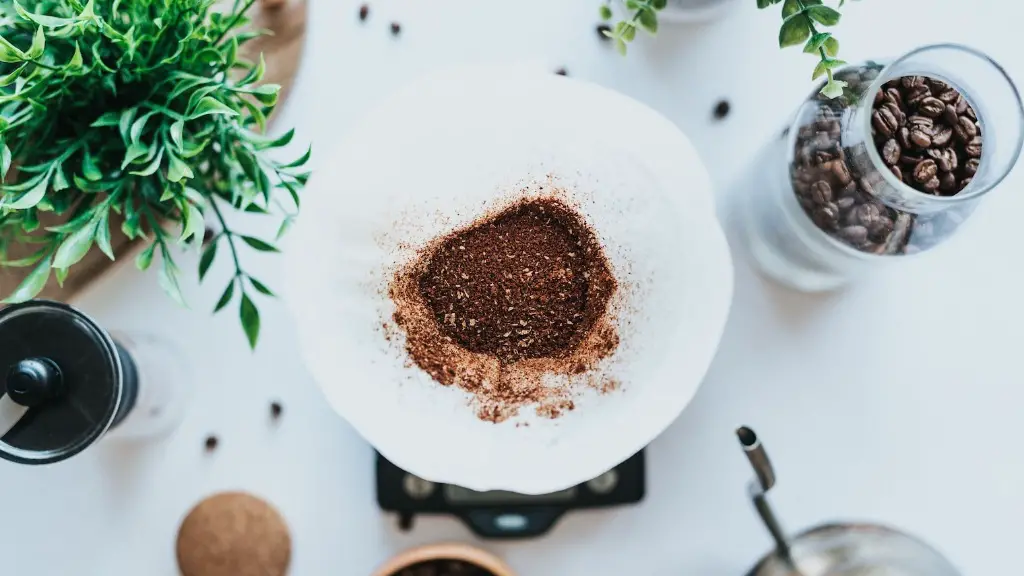Coffee has become an integral part of our daily lives. Caffeine helps us to stay alert, focused and energized all day. But when it comes to drinking too much coffee, the general consensus is that it is not good for your health. Excessive consumption of coffee can lead to dehydration, insomnia and even digestive problems. Still, for some people, coffee is an unavoidable part of their day, and many use it as a way to jumpstart their morning. So, what are the risks of drinking too much coffee?
When it comes to the dangers of drinking coffee, it is important to look at the amount you drink. According to the National Institutes of Health (NIH), drinking between 200 and 400 milligrams of caffeine (roughly 2-4 cups of coffee) per day is considered to be safe. However, it is important to note that the right amount of coffee will vary from person to person depending on their health and lifestyle. Some people may find that they are sensitive to coffee and may need to limit their intake.
In terms of short-term effects, drinking too much coffee can lead to insomnia, irritability and gastrointestinal disturbances such as nausea and vomiting. Longer term risks of excessive coffee consumption include increased blood pressure, increased risk of developing type 2 diabetes and increased risk of heart disease. Coffee can also interfere with the body’s ability to absorb certain vitamins and minerals.
Experts say that the key to enjoying coffee without risking your health is moderation. Try to limit yourself to no more than two cups of coffee per day, and always monitor your caffeine intake. If you find that the effects of caffeine are too strong on your body, it might be better to switch to decaffeinated versions. Swap out your morning cup of coffee with herbal teas or green tea. These are caffeine-free options that can give you a burst of energy without the jitters.
One way to limit your caffeine intake is to avoid drinking coffee late in the day. Caffeine can interfere with your body’s ability to wind down and can make it harder for you to get a good night’s sleep. If you need an extra pick-me-up late in the day, try a cup of chamomile tea or some dark chocolate instead of a cup of coffee. These can give you a little energy boost without the risk of caffeine.
Finally, it’s important to remember that, while drinking too much coffee can be bad for your health, there are some potential health benefits. Coffee has been shown to improve cognitive performance, reduce the risk of certain types of cancer, and even help protect against Alzheimer’s and Parkinson’s diseases. So, while drinking too much coffee can be risky, there’s no need to give it up entirely.
Pregnancy and Coffee
When it comes to pregnant women, it is especially important to always watch your coffee intake. Caffeine can easily find its way into the bloodstream, which can lead to complications during pregnancy. Research suggests that pregnant women should not consume more than 200 milligrams of caffeine per day. So, even if you’re not pregnant, it’s always important to be mindful of your caffeine intake.
The American Society for Reproductive Medicine (ASRM) recommends that pregnant women limit their daily caffeine intake to less than 200 milligrams per day. This is the equivalent of two 8-ounce cups of coffee per day. The ASRM also recommends that pregnant women should avoid other sources of caffeine in their diet, such as energy drinks and sodas.
Excessive caffeine intake in pregnant women can increase the risk of miscarriage and low birth weight. The unborn baby may also be more at risk for certain health problems later in life. For this reason, it is best for pregnant women to avoid drinking more than two cups of coffee per day. If you are pregnant and you find yourself reaching for a cup of coffee frequently, it is best to talk to your doctor about it.
Coffee Alternatives
If you find that coffee is not agreeing with you, there are plenty of alternative options that can give you a pick-me-up without the risks of caffeine. Options like matcha green tea, chaga mushroom tea, or golden milk are all caffeine-free alternatives that can give you an energy boost without the crash. Herbal teas and tonics can also be a great option for those looking to get an energy boost without the risk of caffeine.
For those looking for a stronger boost, stimulant supplements like guarana, dandelion root, and ashwagandha can be an effective alternative to coffee. They are usually caffeine-free, and can provide an energy boost without the jitters and crash associated with coffee.
Finally, for those looking for a more sustainable alternative to coffee, there are a number of coffee substitutes available that can provide the same kind of energy boost without the drawbacks of caffeine. Good-quality substitute coffees made from barley, chicory, or dandelion are all great coffee alternatives that can provide a mild energy boost without the risks associated with regular coffee.
Healthy Habits
The main takeaway here is that, while drinking some coffee can be beneficial, it is important to be mindful of your caffeine intake. Try to drink coffee only up to two cups per day, and never drink it too late in the day. Also, don’t forget to stay hydrated and keep track of your caffeine intake. Finally, if you find that coffee is not agreeing with you, turn to decaffeinated versions or try out some natural alternatives for a healthy energy boost.
Nutritional Facts of Coffee
For those looking for more information on the nutritional components of coffee, here is some food for thought. Coffee contains a few important vitamins and minerals. It is particularly high in manganese, potassium and magnesium. Coffee is also high in antioxidants, and can help lower inflammation in the body. Additionally, coffee contains a small amount of protein, and some studies have suggested that drinking coffee can also help boost metabolism.
However, it is important to note that most of these health benefits are only associated with moderate consumption. If you are drinking more than two cups of coffee per day, the nutritional benefits may not outweigh the risks. Additionally, most of the studies on the health benefits of coffee are observational, which means they are not definitive. It’s always best to talk to your doctor before making any major changes to your diet.
Risks Associated with Drinking Coffee
Excessive consumption of coffee is associated with an increased risk of a number of health issues, such as insomnia, irritability, digestive issues, increased blood pressure, increased risk of developing type 2 diabetes and increased risk of heart disease. Coffee can also interfere with the body’s ability to absorb certain vitamins and minerals, which can lead to Vitamin D and mineral deficiencies. Finally, for pregnant women, drinking more than two cups of coffee per day is associated with an increased risk of miscarriage and low birth weight.
The Bottom Line
Overall, while some experts believe that moderate consumption of coffee can be beneficial, it is important to be mindful of how much you’re drinking. It is recommended to limit your coffee intake to two cups per day, and avoid drinking coffee too late in the day. Remember, if you find that the effects of caffeine are too strong on your body, it might be better to switch to decaffeinated versions or try some natural alternatives.




